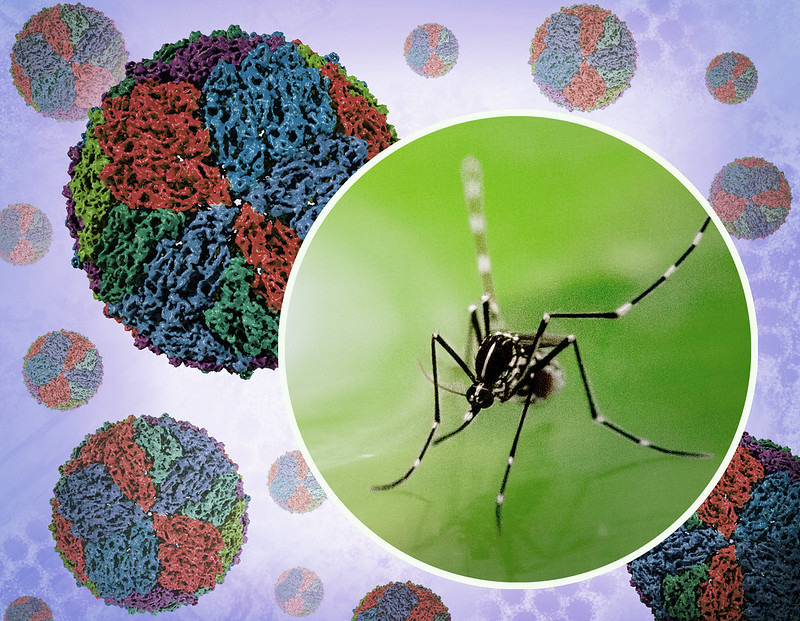
There has been a notable increase in mosquito-borne diseases in the UK, primarily among travellers returning from abroad.
Specifically, there’s been a significant rise in chikungunya cases; the UK Health Security Agency (UKHSA) says more than 70 cases of the chikungunya virus were reported in the first six months of this year, more than double in the same period last year. In addition, the UK also reported its first cases of Oropouche virus, and up to 2000 cases of malaria are reported each year.
Whilst all these cases have been linked to travel abroad, it highlights the rising threat of mosquito borne diseases in many parts of the world and the need for travellers to be aware and take appropriate action to protect themselves. Currently there is no evidence of these or any other mosquito borne diseases spreading within the UK, due to established mosquito populations and colder climate, but climate change could make conditions more favourable for invasive species and is something that needs to be monitored.
There are several mosquito-borne diseases that are prevalent in different areas of the globe. Due to the rise in cases reported in travellers returning to the UK, the UKHSA is warning travellers to take steps to prevent mosquito bites when travelling abroad. Being aware of what diseases are in different regions and preventing mosquito bites in the first place is the best step to prevent infections.
Simple measures such as covering the skin with clothing (long sleeved tops and trousers etc), using insect repellent and sleeping under insecticide treated insect nets if appropriate are all sensible strategies to reduce the risk of getting bitten.
Cases of Chikungunya have notably increased in the UK, with 72 cases reported in the first 6 months of this year, which whilst still a low is significantly higher than the 27 cases that were reported in the first 6 months of last year.
This disease is caused by a virus transmitted by two types of mosquitos, neither of which are present in the UK, so there is no risk of onward infection. Not everyone will get seriously ill if infected, but most people will experience some symptoms, which may be mild to more severe.
Typical symptoms include high fever, joint pain, headache and fatigue. Most people will recover within a couple of weeks, and it is rarely fatal, but Chikungunya can leave people experiencing joint pain for months or years after infection.
The cases in the UK were linked to travel to Mauritius, India and Sri Lanka. An outbreak of the virus is under way in the Indian Ocean region, and travellers to this region should be alert to the potential threat. Vaccines are available for travellers to high-risk areas.
The UK has also reported its first ever cases of Oropouche virus, normally only found in Central and South America and the Caribbean, which has been detected in travellers returning from Brazil. Sometimes referred to as ‘sloth fever’ Oropouche virus is mainly spready by midges and sometimes mosquitoes.
Symptoms appear around 4-8 days after being bitten and include fever, headache, joint and muscle pain and a rash. In many cases symptoms subside then recur days or weeks later, it is not usually fatal, but it can be associated with other complications such as meningitis, miscarriage and microcephaly of the newborn in pregnant women. There is currently no vaccine. There has been a rise in Oropouche virus infections globally since 2024, and pregnant travellers have been warned to take particular care.
Travellers are often more aware of malaria, another mosquito borne disease, and travellers to areas where malaria is endemic are recommended to take anti-malarial tablets before they travel and for up to 2-4 weeks after they get back. However, the UK reported 2,106 imported cases of malaria in 2023— the highest in 20 years.
Other mosquito borne diseases that are of concern include Dengue fever; 473 UK cases in early 2024, a vaccine is recommended for some travellers, Zika Virus; 8 cases reported in early 2024, mostly from Southeast Asia. The main risk is for pregnant women who contract the Zika virus as it can cause birth defects and microcephaly, there is currently no vaccine.
Dr Philip Veal, Consultant in Public Health at UKHSA, says it is a warning to travellers to make sure they take precautions against mosquito bites. ““Chikungunya can be a nasty disease and we’re seeing a worrying increase in cases among travellers returning to the UK.
While this mosquito-borne infection is rarely fatal, it can cause severe joint and muscle pain, headaches, sensitivity to light and skin rashes. Thankfully symptoms usually improve within a few weeks, but joint pain may last for months or longer. It is essential to take precautions against mosquito bites when travelling.
Simple steps, such as using insect repellent, covering up your skin and sleeping under insecticide-treated bed nets can greatly reduce the risk,” he said.Before you travel, check the Travel Health Pro Website for the latest advice on your destination.
(Photo: National Institutes of Health CC)
Rachel Kayani,
Science Tutor and Writer